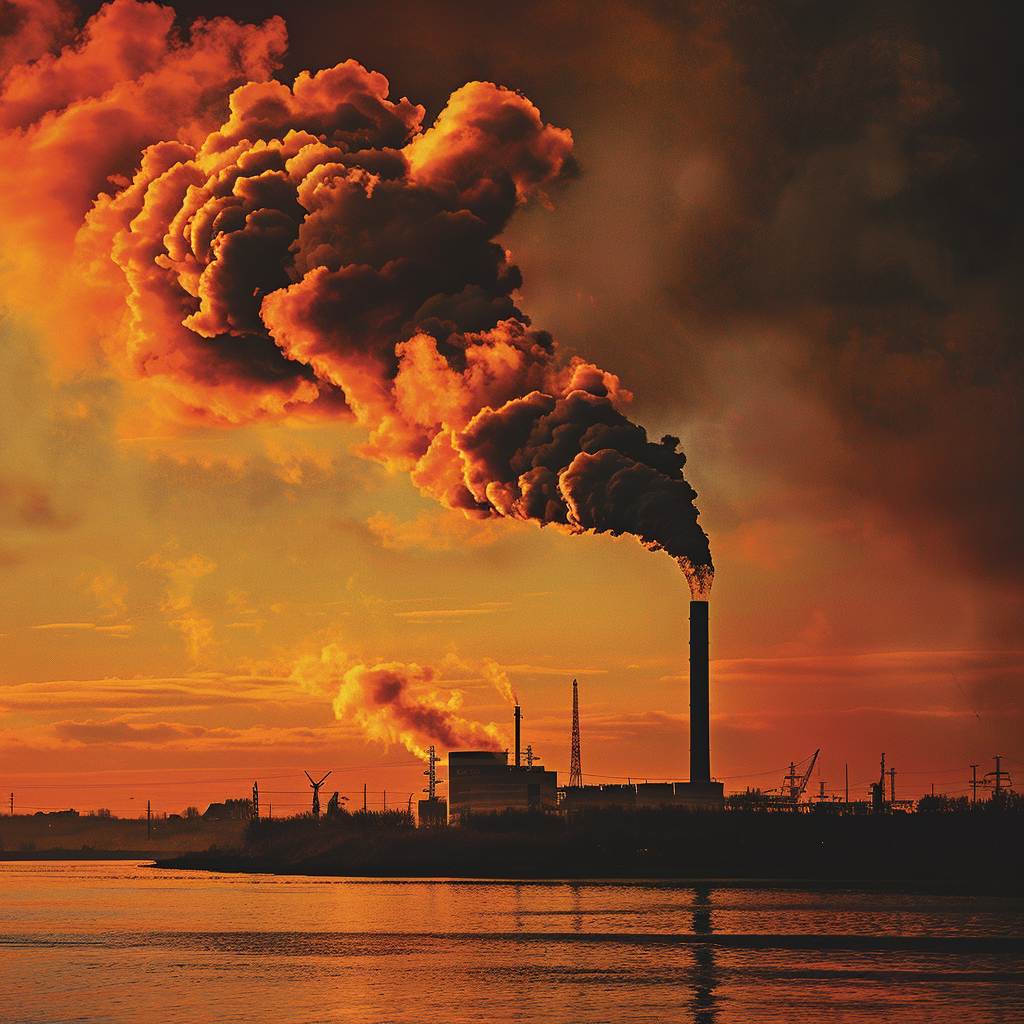
気候変動は、私たちの地球における深刻な問題の一つです。このテーマを理解し、英語で正確に表現する能力は、みなさんにとってますます重要になっています。このコーナーでは、「気候変動」に関連する大学入試によく出る英単語や、予想英語長文を掲載しました。さらに、各例文には朗読音声も付属しており、正しい発音やイントネーションを学べます!
【気候変動に関する最重要英単語20】
1. greenhouse gas (温室効果ガス) – 地球温暖化の原因となる二酸化炭素やメタンなどのガスの総称
2. global warming (地球温暖化) – 人間活動により排出された温室効果ガスによって地球の平均気温が上昇すること
3. climate change (気候変動) – 地球温暖化などにより、長期的に気候のパターンが変化すること
4. renewable energy (再生可能エネルギー) – 太陽光、風力、水力など枯渇しないエネルギー源
5. carbon footprint (カーボンフットプリント) – 個人や組織の活動による二酸化炭素排出量
6. sea level rise (海面上昇) – 地球温暖化により氷河が溶けて海水面が上昇すること
7. extreme weather (極端な気象) – 異常高温、大雨、強い台風など気候変動により増加する異常気象
8. Paris Agreement (パリ協定) – 2015年の国連気候変動枠組条約第21回締約国会議で採択された地球温暖化対策の国際的な枠組み
9. IPCC (気候変動に関する政府間パネル) – 各国の研究者で構成され、気候変動に関する科学的知見をまとめる国際機関
10. carbon tax (炭素税) – 二酸化炭素の排出量に応じて課される環境税
11. carbon offset (カーボンオフセット) – 自身の二酸化炭素排出量を、植林などの活動で相殺すること
12. climate refugee (気候難民) – 気候変動の影響で居住地を追われた人々
13. climate justice (気候正義) – 気候変動による悪影響を不当に被る人々への配慮
14. tipping point (ティッピングポイント) – 気候システムが不可逆的に変化する臨界点
15. climate mitigation (気候変動の緩和) – 温室効果ガスの排出を抑制して気候変動を食い止めること
16. climate adaptation (気候変動への適応) – 気候変動の影響に対して社会システムを調整すること
17. climate resilience (気候変動に対するレジリエンス) – 気候変動の影響を受けても速やかに回復する能力
18. climate action (気候変動対策) – 個人・企業・政府が行う地球温暖化防止の取り組み全般
19. net zero (ネットゼロ) – 二酸化炭素の排出量と吸収量を均衡させ実質的な排出をゼロにすること
20. climate emergency (気候非常事態) – 気候変動が差し迫った危機的状況にあるという認識を示す言葉

【1】Climate Crisis Demands Urgent Global Action
The existential threat of human-caused climate change can no longer be ignored. Greenhouse gas emissions, primarily from the burning of fossil fuels, have driven atmospheric carbon dioxide concentrations to levels unseen in millions of years. This rapid rise in atmospheric CO2 is warming the planet at an unprecedented rate, fueling extreme weather events, sea level rise, and ecosystem destruction across the globe.
To avert the worst impacts of climate change, the world must achieve carbon neutrality by 2050. This will require a rapid transition away from unabated coal power generation and fossil fuel subsidies toward clean energy sources like wind and solar. Carbon capture and storage (CCS) technologies that remove CO2 from power plant emissions may also play a role, though their feasibility at scale remains uncertain.
Developing nations, particularly low-lying island countries, are among the most vulnerable to climate impacts despite contributing little to the crisis. The loss and damage fund established at COP27 aims to compensate these nations for climate-related losses, though its implementation details remain unresolved.
Ultimately, climate change is a threat multiplier that exacerbates existing risks to water and food security, human health, and geopolitical stability. Failure to rapidly decarbonize the global economy will render many regions uninhabitable, sparking mass human migration and conflict. The climate crisis demands an unprecedented global mobilization across every sector of society. Our collective response today will determine the habitability of the planet for generations to come.
日本語訳:
気候危機は緊急の世界的行動を要求する
人為的な気候変動の実存的脅威は、もはや無視することはできません。主に化石燃料の燃焼から生じる温室効果ガスの排出により、大気中の二酸化炭素濃度は数百万年ぶりのレベルにまで上昇しました。大気中のCO2のこの急激な上昇は、地球を前例のないペースで温暖化させ、世界中で極端な気象現象、海面上昇、生態系の破壊を引き起こしています。
気候変動の最悪の影響を回避するためには、世界は2050年までにカーボンニュートラルを達成しなければなりません。このためには、石炭火力発電や化石燃料補助金から風力や太陽光などのクリーンエネルギー源への迅速な移行が必要です。発電所の排出物からCO2を除去する二酸化炭素回収・貯留(CCS)技術も役割を果たす可能性がありますが、その大規模な実現可能性はまだ不確かです。
発展途上国、特に低地の島嶼国は、この危機にほとんど貢献していないにもかかわらず、気候変動の影響に最も脆弱な国々の一つです。COP27で設立された損失と損害の基金は、これらの国々に気候関連の損失を補償することを目的としていますが、その実施の詳細はまだ未解決のままです。
結局のところ、気候変動は、水と食料の安全保障、人間の健康、地政学的安定性に対する既存のリスクを悪化させる脅威の増幅要因なのです。世界経済の迅速な脱炭素化ができなければ、多くの地域が居住に適さなくなり、大規模な人口移動と紛争を引き起こすことになります。気候危機は、社会のあらゆる分野で前例のない世界規模の動員を要求しています。私たちの今日の集団的対応が、何世代にもわたって地球の居住可能性を決定づけることになるのです。
重要な単語・イディオム:
1. existential threat (実存的脅威)
2. human-caused climate change (人為的な気候変動)
3. atmospheric carbon dioxide concentrations (大気中の二酸化炭素濃度)
4. unprecedented rate (前例のないペース)
5. extreme weather events (極端な気象現象)
6. carbon neutrality (カーボンニュートラル)
7. unabated coal power generation (削減対策のない石炭火力発電)
8. fossil fuel subsidies (化石燃料補助金)
9. clean energy sources (クリーンエネルギー源)
10. Carbon capture and storage (CCS) (二酸化炭素回収・貯留)
11. low-lying island countries (低地の島嶼国)
12. loss and damage fund (損失と損害の基金)
13. climate impacts (気候変動の影響)
14. threat multiplier (脅威の増幅要因)
15. decarbonize (脱炭素化する)
16. global mobilization (世界規模の動員)

【2】Climate Change: A Global Challenge
Climate change has become one of the most pressing issues facing humanity in the 21st century. The concentration of atmospheric carbon dioxide has reached unprecedented levels, leading to a rise in global temperatures and an increase in the frequency and severity of extreme weather events. The Paris Agreement, signed by 196 countries in 2015, aims to limit global warming to well below 2 degrees Celsius above pre-industrial levels. However, achieving this goal will require a massive reduction in greenhouse gas emissions and a transition to a low-carbon economy.
One of the main challenges in addressing climate change is the continued reliance on fossil fuels, which are the primary source of greenhouse gas emissions. Despite the urgent need to reduce emissions, many countries continue to subsidize fossil fuel production and consumption. To achieve the goals of the Paris Agreement, it will be necessary to phase out unabated coal power generation and accelerate the deployment of clean energy technologies such as wind, solar, and hydropower.
In addition to reducing emissions, it is also important to adapt to the impacts of climate change that are already occurring. Rising sea levels pose a particular threat to low-lying countries and island nations, while changes in temperature and precipitation patterns are affecting agriculture and water resources around the world. Adaptation measures such as building sea walls, developing drought-resistant crops, and improving early warning systems for extreme weather events can help to reduce the vulnerability of communities to the impacts of climate change.
Ultimately, addressing climate change will require a concerted effort by governments, businesses, and individuals around the world. By reducing our carbon footprint, investing in clean energy technologies, and supporting policies that promote sustainability, we can work towards a more resilient and sustainable future for all.
日本語訳:
気候変動:地球規模の課題
気候変動は、21世紀に人類が直面する最も差し迫った問題の1つになっています。大気中の二酸化炭素濃度は前例のないレベルに達しており、地球の気温上昇と極端な気象現象の頻度と深刻度の増加につながっています。2015年に196カ国が署名したパリ協定は、地球温暖化を産業革命前のレベルから2℃未満に抑えることを目的としています。しかし、この目標を達成するには、温室効果ガス排出量の大幅な削減と低炭素経済への移行が必要です。
気候変動に取り組む上での主な課題の1つは、温室効果ガス排出の主要原因である化石燃料への継続的な依存です。排出量を削減する緊急の必要性があるにもかかわらず、多くの国は化石燃料の生産と消費に補助金を出し続けています。パリ協定の目標を達成するためには、削減対策のない石炭火力発電を段階的に廃止し、風力、太陽光、水力などのクリーンエネルギー技術の導入を加速することが必要不可欠です。
排出量の削減に加えて、すでに起こっている気候変動の影響に適応することも重要です。海面上昇は、低地の国々や島嶼国に特に脅威をもたらす一方で、気温と降水パターンの変化は、世界中の農業と水資源に影響を与えています。防潮堤の建設、干ばつに強い作物の開発、極端な気象現象に対する早期警戒システムの改善などの適応策は、気候変動の影響に対するコミュニティの脆弱性を軽減するのに役立ちます。
結局のところ、気候変動に取り組むには、世界中の政府、企業、個人による協調的な努力が必要となります。私たち一人一人が炭素排出量を減らし、クリーンエネルギー技術に投資し、持続可能性を促進する政策を支援することで、すべての人々のためのより回復力があり持続可能な未来に向けて努力することができるのです。
重要な単語・イディオム:
1. pressing issues (差し迫った問題)
2. atmospheric carbon dioxide (大気中の二酸化炭素)
3. global warming (地球温暖化)
4. greenhouse gas emissions (温室効果ガス排出量)
5. low-carbon economy (低炭素経済)
6. fossil fuels (化石燃料)
7. Paris Agreement (パリ協定)
8. unabated coal power generation (削減対策のない石炭火力発電)
9. clean energy technologies (クリーンエネルギー技術)
10. rising sea levels (海面上昇)
11. low-lying countries (低地の国々)
12. adaptation measures (適応策)
13. carbon footprint (炭素排出量)
14. sustainability (持続可能性)
15. resilient (回復力のある)





